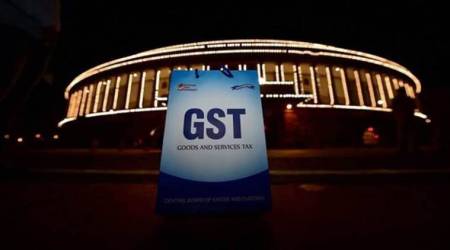 This year, 22 H1N1 deaths have been recorded of which, 14 patients were Mumbai residents. (Picture for representational purpose)
This year, 22 H1N1 deaths have been recorded of which, 14 patients were Mumbai residents. (Picture for representational purpose)
With more than 500 cases of H1N1 reported in Mumbai this year, most of those since June, the public health department has intensified its vaccination drive for high-risk groups — pregnant women, health workers and those with hypertension, diabetes and lower immunity.
Latest data from Brihanmumbai Municipal Corporation (BMC) show that 3,064 vaccinations have been administered till July 19 this year, of which, 2,268 were for pregnant women, 650 vaccinations were administered to government health care workers and 146 to those suffering from hypertension or diabetes.While private doctors claim that the efficacy of H1N1 vaccine is less than 80 per cent and its effect against the virus lasts for seven to eight months – thereby not recommending it to everyone – the civic health department has stressed on compulsory vaccination for high-risk groups that
While private doctors claim that the efficacy of H1N1 vaccine is less than 80 per cent and its effect against the virus lasts for seven to eight months – thereby not recommending it to everyone – the civic health department has stressed on compulsory vaccination for high-risk groups that has seen a high fatality rate this year.
This year, 22 H1N1 deaths have been recorded of which, 14 patients were Mumbai residents. “In 80 per cent cases, we saw a delay in starting tamiflu treatment. Doctors are urged to start tamiflu even if they suspect H1N1 and not wait for lab reports. By the time reports confirm the diagnosis, the treatment is already delayed by two days,” a civic official said.
The BMC analysed deaths of 22 people due to H1N1 and found that most of them either belonged to the high risk category or suffered from a delay in starting the Oseltamivir drug. “Several were admitted to BMC hospitals after visiting one or two private doctors or hospitals,” the civic official said.
According to experts, earlier, the Californian strain of the virus was under circulation in the city but this year, the Michigan strain has been reported.
“The viral strain keeps mutating every year. So each time, a new vaccine has to be given to people,” said Dr Shahid Barmare, a general physician. “We are only recommending the vaccine to those with heart problems and tuberculosis or patients with co-morbid infections. We are not giving it to every one. People may develop resistance to the vaccine,” Barmare added.
After a rapid escalation in H1N1 cases, the civic health department is predicting a decline in the coming days. Barmare said the number of H1N1 patients have reduced in the past week. Data from the civic health department showed that in June end and July first week, on an average, at least 35 new H1N1 cases were recorded daily in both public and private hospitals. The cases have now come down to 12 per day.
In the past fortnight, the state government said, new cases have been reported in pockets of Thane and Mumbai with both the regions recording three deaths since Thursday. Currently, BMC is buying vaccine stock from Abbott and Sanofi Pasteur.
An official from Sanofi Pasteur said the current vaccine costs around Rs 800 with three strains — Michigan, Brisbane, and Hong Kong virus — that provides efficacy of 70-80 per cent against H1N1 infection. “We are coming out with a vaccine twice a year to fight the outbreak during winter and rainy season when cases peak in India. In USA, the vaccine is recommended for everyone because they can afford it,” the official said.
A deputy executive health officer at the BMC said: “It is important for people to take the vaccine as a precautionary measure, especially pregnant women who are most prone to infection.”
tabassum.barnagarwala@expressindia.com

